Film Series
CAL Film Series: Journalism in the Movies
NAU and the Flagstaff community are invited to come together in front of the big screen in Cline Library’s Assembly Hall for the College of Arts and Letters Film Series.
Discussions and screenings take place every other Tuesday at 7 p.m.
All screenings are free and open to the public. Each classic movie will be preceded by a short introduction from NAU faculty and followed by a community discussion.
The film series promotes understanding and appreciation of cinema through Northern Arizona University and the greater Flagstaff community. The CAL Film Series blends well-known audience favorites along with lesser-known films, as well as a mix of genres, directors, and actors. This season, the focus is on Journalism in the Movies and features perennial classics like Citizen Kane as well as more contemporary pieces like She Said and Good Night and Good Luck. In January, scheduled films include an exclusive advanced screening of Kiss the Future, produced by Matt Damon, Ben Affleck, and Sarah Anthony, and written by NAU’s own professor Bill Carter based on his experiences during the Bosnian Wars as detailed in his book Fools Rush In.
The film series is made possible with the support of the College of Arts and Letters, the Department of Comparative Cultural Studies, the School of Communication’s Journalism Program, NAU’s Cline Library, and under the direction of professors Paul Helford and Paul Donnelly.
Free weeknight parking is available for community members behind Cline Library and requires a special free permit.
January
January 16: Citizen Kane
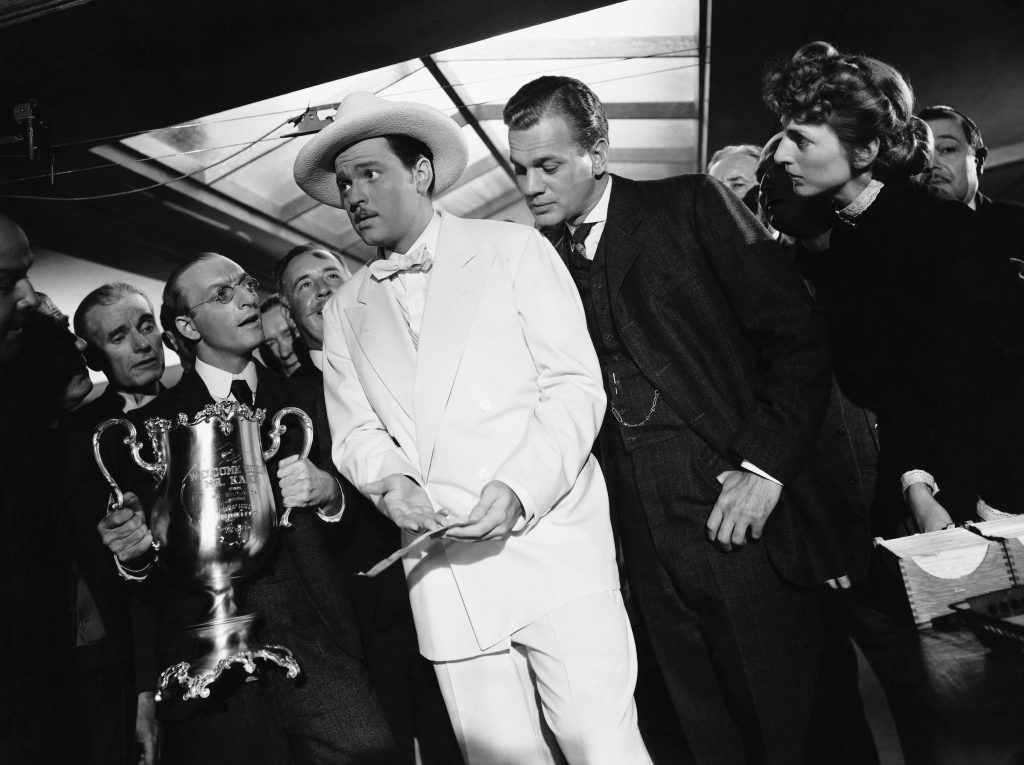
Directed by Orson Welles in 1941.
A 25-year-old Orson Welles took what he’d learned about producing Broadway shows and radio dramas, hired the great cinematographer Gregg Toland, and wrote, directed, and starred in Citizen Kane. The film is still recognized over 80 years later as one of the greatest and most influential motion pictures ever made.
“Ultimately a tale of a man who values riches and power over all else and squanders his life as a result, Citizen Kane’s story has influenced countless classics that have come since. The plot functions as a brutal condemnation of real-life mogul Charles Randolph Hearst (who attempted a blackmail plot to stop Welles from making the movie), a pointed critique of the rise of fascism in America and Europe, and a compelling human drama at once. This strong archetypical story of a tragic antihero ensures that the movie’s experimental technical aspects never draw audiences away from its central plot, and the range of perspectives that the tale is told from means Welles manages to make audiences sympathize with an unlikeable protagonist. Hearst, Citizen Kane’s inspiration, was ruthless enough to try ruining the director’s life and reputation before the movie was even released. In that respect, it set the stage for future sympathetic villain protagonists like Walter White, Dexter Morgan, and Tony Soprano.” – Cathal Gunning, Screenrant.com
Rotten Tomatoes: 99%
Watch the theatrical trailer.
January 23: Kiss the Future
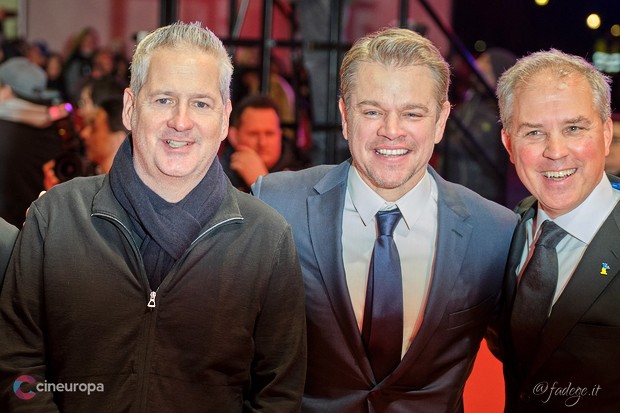
Directed by Nenad Cicin-Sain in 2023.
Meet NAU School of Communication Professor Bill Carter, whose 2005 memoir, Fools Rush In, inspired this documentary about his time as an aid working during the Bosnian War. He engaged U2, the biggest band in the world, to help raise awareness about the siege of Sarajevo. Produced by Ben Affleck and Matt Damon, this uplifting celebration of the power of the human spirit shows music’s potential to change the world.
“Kiss the Future celebrates the underground art and music scene that thrived during the siege of Sarajevo. The biggest band in the world, U2, paid attention and shined a light on the crisis in an effort to support the besieged Sarajevans. The film culminates in a post-war unification concert. A cautionary tale about the rise of nationalism, and an uplifting celebration of the power of the human spirit and art as a tool of survival and inspiration.” – IMDB
Rotten Tomatoes: 100%
Watch the theatrical trailer.
February
February 6: Face in the Crowd
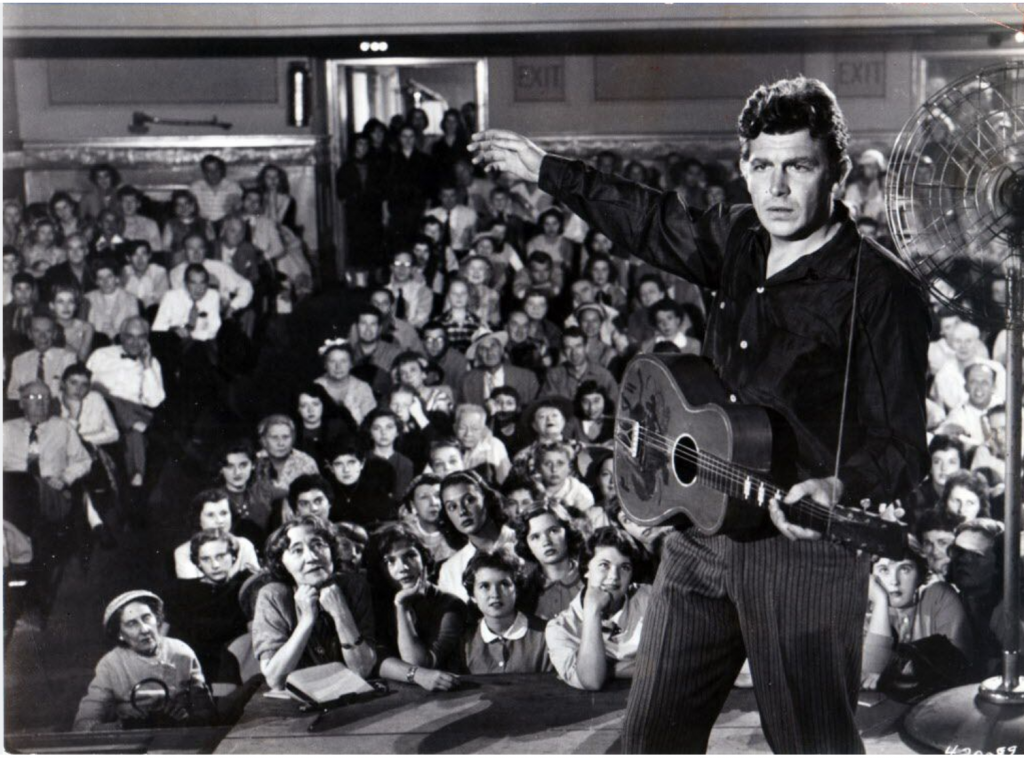
Directed by Elia Kazan in 1957.
Even now, more than 60 years later, this 1950s Elia Kazan-directed movie can still serve as a warning about the media’s dangerous influence and the pursuit of power. The film follows the story of a reporter (Patricia Neal) who turns a drifter, played by Andy Griffith, in a raw and rare dramatic role, into a media star during television’s first decade.
Chris Vognar, special contributor to The Dallas Morning News, wrote of Andy Griffith’s Larry “Lonesome” Rhodes, as “…[an] opportunistic hillbilly who develops a thirst for power and a serious cult of personality.” Rhodes morphs from a backward product pitchman into a wealthy political kingmaker, destroying lives along the way. The film’s themes—megalomania, cynical populism, media manipulation, and the toxic brew of money and politics—keep it alarmingly topical and topically alarming.
Rotten Tomatoes: 88%
Watch the theatrical trailer.
February 20: Network
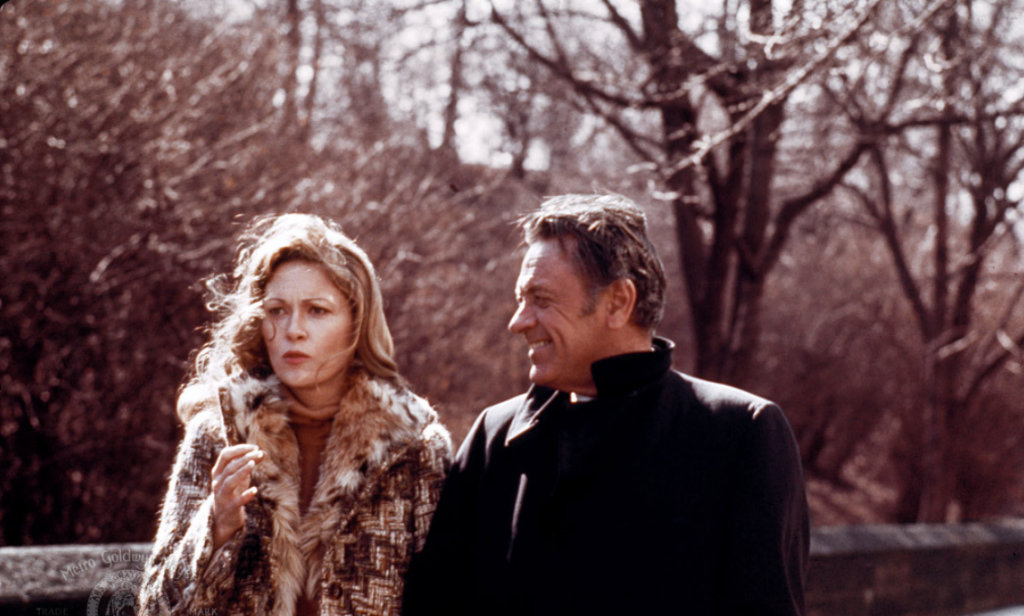
Directed by Sidney Lumet in 1976.
Network earned 10 Oscar nominations and won 4—including Best Actor and Best Actress for Peter Finch and Faye Dunaway, as well as Best Screenplay for the work created by Beatrice Straight and Paddy Chayefsky. The film is disturbingly prophetic and darkly comic. It tells the story of a television news anchor who goes mad and proposes the dystopian idea that television news could become entertainment for profit. We are checking this now, but it seems that the film was created as a fictional tale.
Rotten Tomatoes: 92%
Watch the theatrical trailer.
March
March 5: She Said

Directed by Maria Schrader in 2022.
Zoe Kazan and Carey Mulligan star as New York Times reporters Jodi Kantor and Megan Twohey in director Maria Schrader’s adaptation of the journalists’ book She Said: Breaking the Sexual Harassment Story That Helped Ignite a Movement. The film follows their investigation into Hollywood producer Harvey Weinstein and the role they played in the #MeToo movement.
Critic Nell Minow’s review notes that Maria Schrader’s She Said “…makes clear the ways in which powerful men are enabled while devastated women are silenced. The title of the film significantly uses just half of the dismissive ‘he said/she said’ response to sexual harassment accusations in the absence of witnesses.”
Rotten Tomatoes: 91%
Watch the theatrical trailer.
March 19: Almost Famous
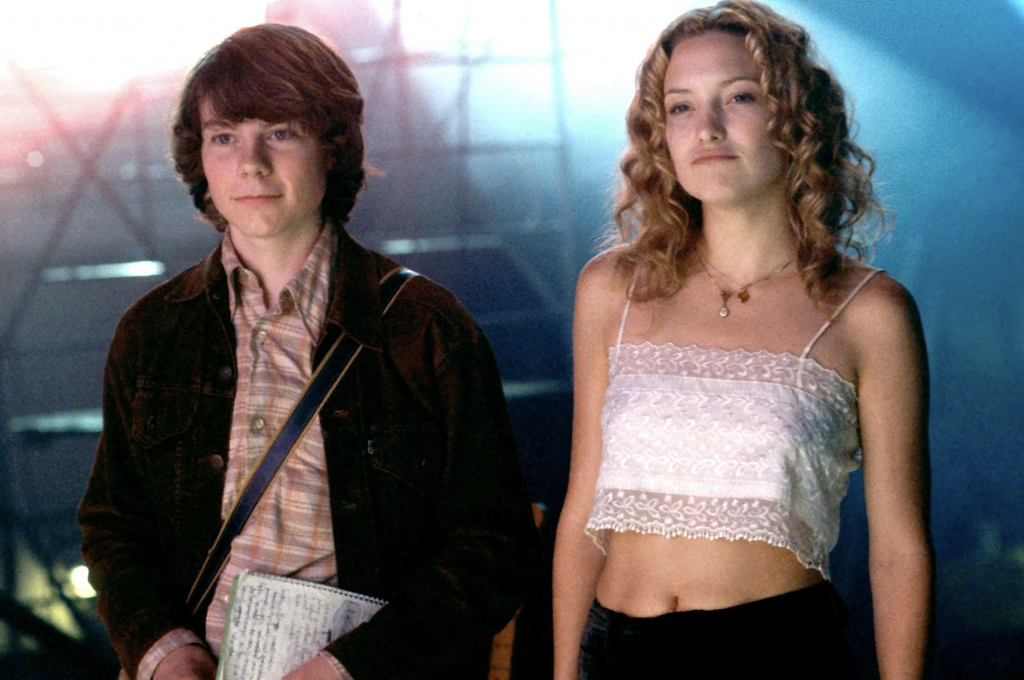
Directed by Cameron Crowe in 2000.
Cameron Crowe wrote and directed this four-time Oscar-nominated film about a teenage journalist following a rock band on tour in the 1970s, based on his real-life gig as a Rolling Stone magazine journalist. In fact, when Cameron Crowe called the offices of Rolling Stone with a scoop about Bob Dylan, he was only 15 years old. Within two years, he became the youngest person ever to write a cover feature for the magazine, and as the film shows, was following bands from The Who to Led Zeppelin on tour. The stellar cast in his semi-autobiographical story includes newcomer Patrick Fugit, Francis McDormand, Billy Crudup, Kate Hudson, and Philip Seymour Hoffman.
Rotten Tomatoes: 92%
Watch the theatrical trailer.
April
April 2: All the President’s Men
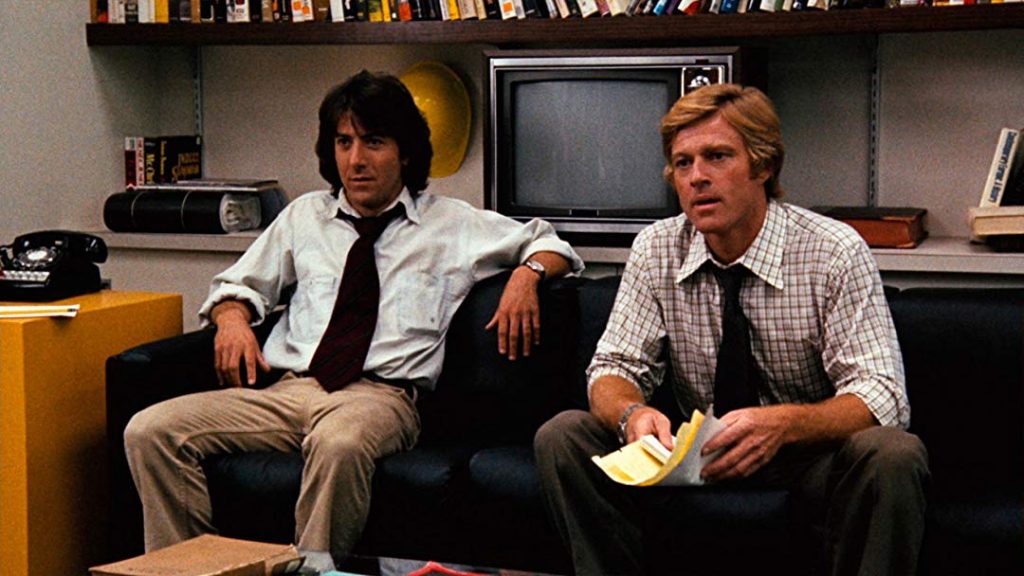
Directed by Alan J. Pakula in 1976.
Pakula’s film is based on the 1974 book on the Watergate break-in and its subsequent cover-up, written by journalists Bob Woodward and Carl Bernstein. Their work ultimately led to the resignation of President Richard Nixon. Dustin Hoffman and Robert Redford star as the two reporters. The film was a box-office smash and was nominated in eight Oscar categories, winning four.
The Watergate Scandal marked a watershed moment in American history, and it, along with the Vietnam War, has often been credited with an increasing cynicism about government among the American public. Come see how it all started.
Rotten Tomatoes: 94%
Watch the theatrical trailer.
April 16: Absence of Malice
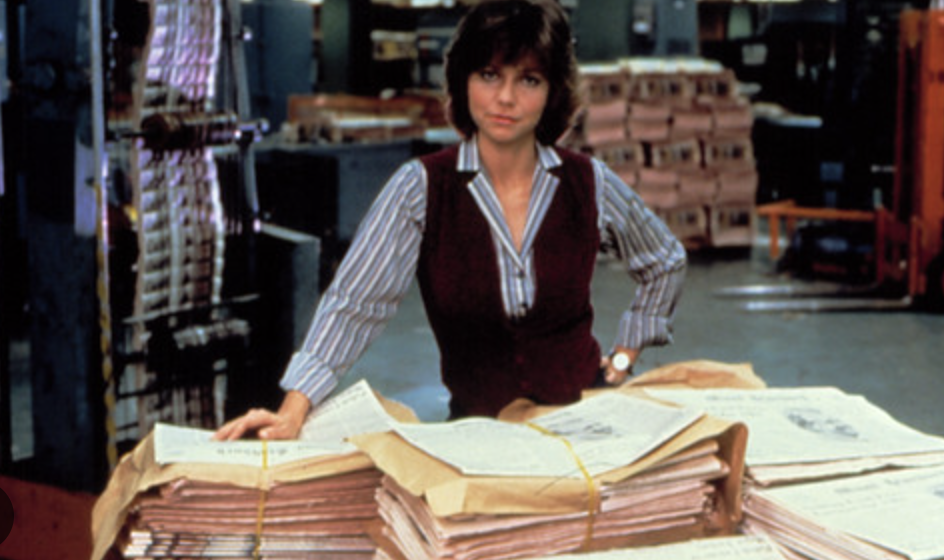
Directed by Sydney Pollack in 1981.
Sally Field stars as a newspaper reporter who prints an unattributed story about a secret investigation and then becomes romantically involved with the subject of the investigation, played by Paul Newman, with disastrous results. The film shows us the potential dangers of journalism when the quest for a good story sets rigor and ethics aside.
Rotten Tomatoes: 81%
Watch the theatrical trailer.
April 30: Good Night and Good Luck
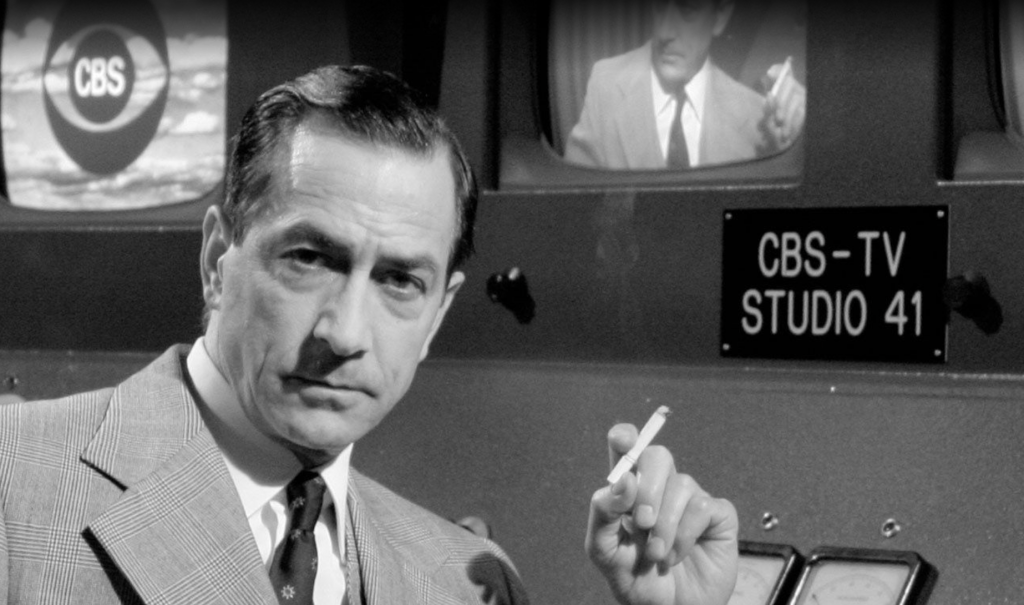
Directed by George Clooney in 2005.
David Straithairn stars as legendary television journalist Edward R. Murrow, who publicly challenged Senator Joseph McCarthy’s assertions about alleged communist infiltrators in the army and other branches of the federal government in the early 1950s. Murrow’s heroic unwillingness to back down is a testament to the power of a free press.
Rotten Tomatoes: 93%
Watch the theatrical trailer.
